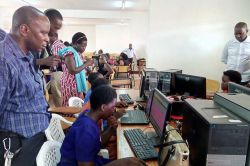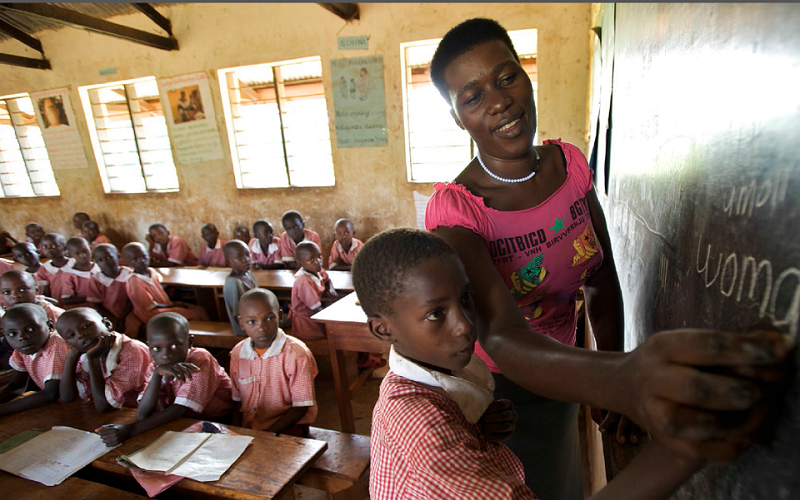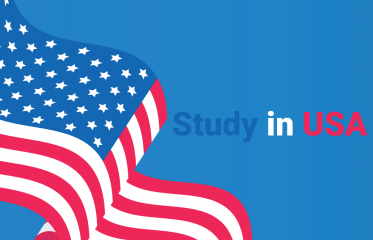Do you desire to have a lifelong impact on others especially young people? Then you will want to take a close look at the Education and Training Career field.
Education and Training
Some say, Teaching is the profession that makes all other professions possible. What do you think about this? I think it’s very true. Without teachers, lecturers, tutors or trainers, we would not be having doctors, nurses, bankers, auditors, manager or even teachers, name it, the list is endless. This career field is actually the backbone of most of the careers because they prepare us for our future aspirations, businesses and jobs.
The people who work in this career field instill knowledge and skills that people need to succeed. Their work ranges from early childhood development to adult education. They help us prepare for the many achievements and challenges that personal or professional life may bring our way.
According to the survey conducted by the New Vision newspapers only 7% of jobs in this sector were advertised, yet this sector is a major employer because jobs exist both in government and private aided schools with an average of 2,000 teachers are recruited annually but there is still a shortfall of teachers.
UNESCO estimates that Africa has a deficit of 17 million teachers to achieve the Sustainable Development Goal 4, Quality Education (universal primary and secondary education) by 2030. About 6.3 million primary teachers are needed: 2.4 million to fill new teaching posts to accommodate all children and 3.9million to replace the teachers expected to leave the profession. At the secondary level, the region must recruit 10.8 million teachers by 2030, including 7.1 million for new teaching positions and 3.7 million to replace those who have left.
This sector can be sub-divided in 3 categories;
1. Administration and Administrative Support
People who take on careers in this category provide direction, leadership and day-to-day management of educational activities in schools, preschools, daycare centers, colleges, universities, businesses, and industries, correctional institutions, museums, job training, and community service organizations.
2. Professional Support Services
People who take on careers here represent a variety of highly specialized occupations that are critical to our education and training system. Counselors, psychologists, social workers, speech-language pathologists and audiologists assist with personal and family needs, mental health assistance, educational goals, and career decision making.
3.Teaching and Training
People who take on careers in this category must have the ability to communicate, inspire trust and confidence, and motivate learners, as well as understand their educational and emotional needs. Teachers must be able to recognize and respond to individual differences in diverse learners, and employ different teaching/training methods that will result in higher learner achievement.
FUTURE JOBS
The Ministry of Education, Science, Technology and Sports, Career Guidance Handbook shows the following jobs in this career field:
- Lecturers
- Child and Youth Care Workers
- Day care Centre Managers
- Teachers
- Education and Training Consultants
- Life and Career Counsellors
- Special Needs Education teachers
- Curriculum Development Specialist
- Training and Development Manager
- Corporate Trainer
- Early Childhood Educator
- Philosophers
- Writers
- Researchers
- Consultants.
SKILLS
These are some of skills that you will need to have inorder to thrive in this career field;
- Ability to influence others
- Analytical
- Supervision skills
- Good thinking perceiving
- Entertaining
- Sense of humor
- Sociable
- Assertiveness
- Stress management
- Flexibility
- Proactive
- Tolerance
- High self-esteem among others.
JOB QUALIFICATIONS
Most employers in this sector required an undergraduate degree 50%, work or job-oriented skills 23%, diploma 19% and about 36% required a masters or postgraduate qualification.
COURSES
The fields of study to enroll for in this career field include;
- Education (Arts)
- Education (Sciences)
- Adult and Community Education
- Education (Vocational)
- Early Childhood Development
- Child Development and Child Ministry
- Community Development
- Community Psychology
- Special Needs Education
- Sign Language.
COURSE ENTRY QUALIFICATIONS
- Direct Entry; the candidates should have a minimum of two (2) principle passes in all A ‘level subjects obtained at the same sitting or its equivalent in relevant subjects.
- Diploma entry scheme; the candidate should hold a relevant diploma in Health Science course.
- Mature age entry scheme; the candidate should have a pass in the mature age entry examinations with at least 50% and must be 25 years and above with a certificate or diploma in any Health Science course.
NOTE: Candidates who have obtained at least one (1) principle pass or its equivalent in relevant subjects can apply for diploma and certificate programmes. For certificate courses, candidates must have attained a minimum of 5 credits at O ‘level.
(SOURCES: The New Vision newspaper university guide, the Ministry of Education, Science, Technology and Sports, Career Guidance Handbook, UNESCO, UN and the Uganda Bureau of Statistics)































